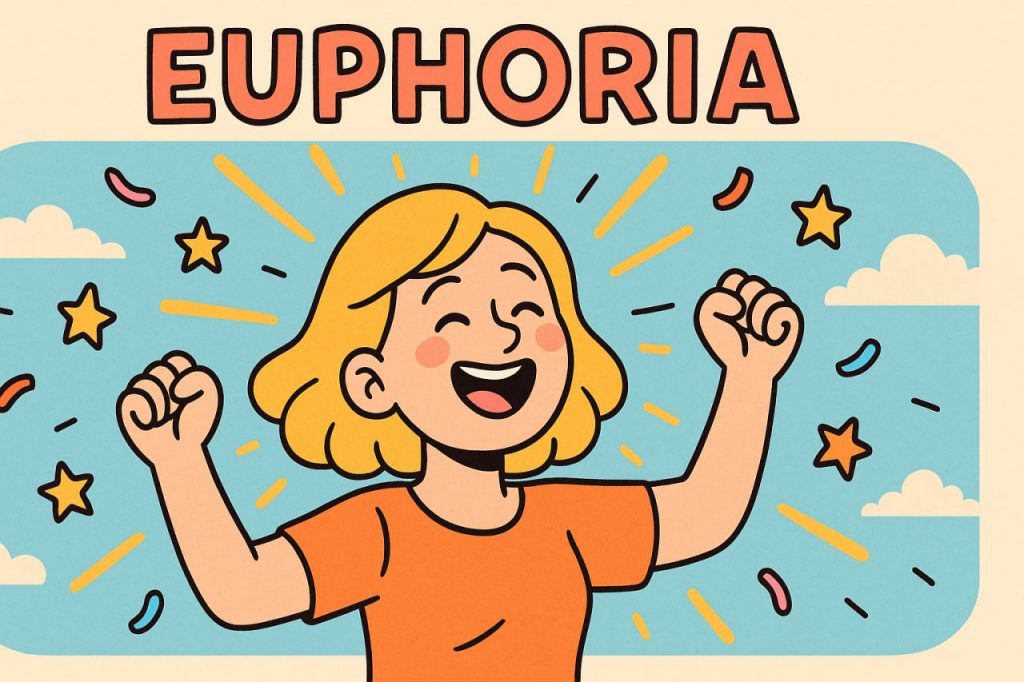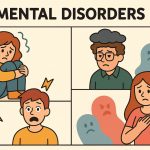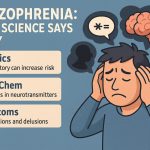Euphoria is an intense feeling of happiness, excitement, or well-being that goes beyond normal positive emotions. Unlike ordinary joy, euphoria is often described as overwhelming, almost ecstatic, and can create a sense of invincibility or boundless energy. It may occur naturally in response to achievements, love, or creative inspiration. However, it can also appear in medical or psychological contexts, sometimes linked to disorders or the effects of substances. Understanding euphoria helps to distinguish between healthy emotional highs and situations that may require attention.
Causes of Natural Euphoria
Euphoria naturally occurs when the brain releases higher amounts of dopamine, serotonin, or endorphins. This can happen during exercise, such as the well-known “runner’s high,” or after significant personal accomplishments. Positive social interactions, falling in love, or engaging in enjoyable hobbies may also trigger euphoric states. In such cases, euphoria is short-lived but beneficial, reinforcing behaviors that improve well-being. These experiences highlight how deeply emotions are connected to brain chemistry and human survival instincts.
Euphoria in Medical Contexts
In medicine, euphoria may sometimes indicate abnormal brain or body processes. Neurological conditions, such as bipolar disorder during manic episodes, can cause euphoric states that are disproportionate to reality. Certain drugs or medications may also produce artificial euphoria, which can lead to misuse and dependency. In such cases, euphoria is not a sign of health but rather a symptom requiring medical evaluation. Distinguishing natural joy from pathological euphoria is important for proper diagnosis and care.
Risks of Artificial Euphoria
Artificially induced euphoria, often caused by drugs or alcohol, carries significant risks. These substances can overstimulate the brain’s reward system, leading to addiction. While the initial feelings may be pleasurable, repeated use damages the natural balance of brain chemistry. Over time, individuals may struggle to feel joy without external stimulation, which negatively affects mental health. This illustrates why artificial euphoria should be treated with caution and why professional help is often necessary for those who develop dependence.
Euphoria in Sports and Creativity
Not all euphoric experiences are harmful. Many athletes experience euphoria after intense physical activity due to endorphin release. Similarly, artists, musicians, and writers may feel euphoric bursts of inspiration, often described as being “in the flow.” These forms of euphoria enhance motivation, productivity, and satisfaction. They show that when experienced in moderation, euphoria can be a healthy and rewarding part of human life.
Psychological and Social Aspects
Euphoria also has social and psychological importance. Shared euphoric experiences, such as concerts, religious rituals, or collective celebrations, strengthen community bonds. On an individual level, short-term euphoria can improve confidence and emotional resilience. However, relying too heavily on euphoric states may create unrealistic expectations for constant happiness. Understanding the balance between everyday contentment and rare euphoric moments is essential for emotional stability.
Conclusion
Euphoria is a powerful emotional state that can enrich life when experienced naturally but may signal concern when artificially induced or linked to disorders. It plays a vital role in motivation, creativity, and social connection, while also reminding us of the delicate balance of brain chemistry. Recognizing its sources and limits helps people appreciate euphoria without falling into harmful patterns.
But no amount of euphoria can replace the quiet, soulful joy and deep peace that we can find in our soul…
Glossary
- Euphoria – an intense feeling of happiness or well-being.
- Dopamine – a neurotransmitter linked to pleasure and motivation.
- Serotonin – a chemical in the brain associated with mood regulation.
- Endorphins – natural brain chemicals that reduce pain and promote happiness.
- Bipolar disorder – a mental condition with alternating episodes of mania and depression.
- Addiction – dependence on substances or behaviors due to changes in brain reward systems.


